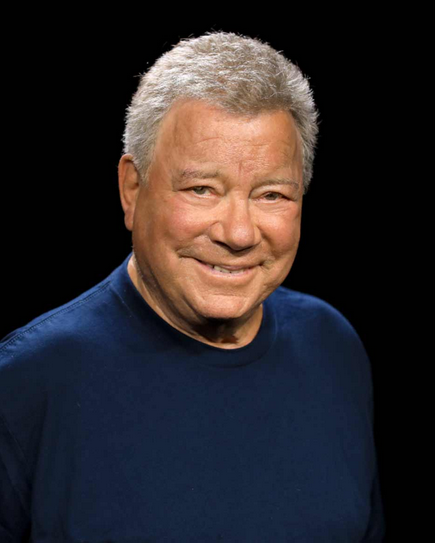William Shatner Says Space Trip Filled Him With ‘Dread’
10th Oct 2022
The Star Trek actor and now oldest person to travel to space, William Shatner, in his new book has revealed his trip beyond the Karman Line was like a “funeral” and did not go the way he expected. The now 91-year-old last year joined the second crewed flight of Blue Origin’s New Shephard spacecraft on 13 October, and at the time, Shatner said the experience was “so moving” and “unbelievable”, and even shared that it was incredible to see the blackness of the atmosphere. But now, in his new book ‘Boldly Go: Reflections on a Life of Awe and Wonder’, the actor has conveyed his unfiltered thoughts on the flight.
The launch
In a snippet from the new William Shatner book revealed by Variety, the actor said in the lead-up to the launch he was nervous and couldn’t get the Hindenburg out of his mind. While the ground crew kept assuring the passengers that everything would be fine, he thought: “Sure, easy for them to say, I thought. They get to stay here on the ground.”
Before the New Shepard was ready to launch, Shatner was told there was a “slight anomaly” in the engine. While he believed it sounded serious, moments later the ground crew said they were ready to go. The real blast-off occurred at 10:49 am EDT on Wednesday from west Texas.
“With all the attending noise, fire, and fury, we lifted off. I could see Earth disappearing. As we ascended, I was at once aware of pressure. Gravitational forces pulling at me,” Shatner said in his book. He revealed that on the capsule, there was an instrument that showed how many “g’s” – G-Force, or the gravitational force – they would be feeling. He said as it increased, he could barely move and was worried he wouldn’t be able to handle the pressure. “Will I pass out? Will my face melt into a pile of mush? How many g’s can my ninety-year-old body handle?” Shatner feared.
William Shatner and his real experience in space
Not long after blastoff, Shatner said he felt a sudden relief of weightlessness and was restless to see the window while the other passengers went into somersaults. But this is where the experience changed for him. Shatner said:
“I love the mystery of the universe. I love all the questions that have come to us over thousands of years of exploration and hypotheses. Stars exploding years ago, their light traveling to us years later; black holes absorbing energy; satellites showing us entire galaxies in areas thought to be devoid of matter entirely… all of that has thrilled me for years… but when I looked in the opposite direction, into space, there was no mystery, no majestic awe to behold . . . all I saw was death.”
Shatner continued to explain that the blackness was “unlike” anything on Earth and was “all-encompassing”. He said in comparison to the darkness of space was the “nurturing” and “sustaining” view of Earth.
“Everything I had thought was wrong. Everything I had expected to see was wrong. I had thought that going into space would be the ultimate catharsis of that connection I had been looking for between all living things—that being up there would be the next beautiful step to understanding the harmony of the universe. In the film “Contact,” when Jodie Foster’s character goes to space and looks out into the heavens, she lets out an astonished whisper, “They should’ve sent a poet.” I had a different experience because I discovered that the beauty isn’t out there, it’s down here, with all of us. Leaving that behind made my connection to our tiny planet even more profound”, Shatner explained.
He said it was one of “the strongest feelings of grief” he had ever felt and seeing the difference between the “coldness of space” and “the warm nurturing of Earth” filled him with “overwhelming sadness.” At the end of the snippet, Shatner said the experience was confronting as it reminded him of the destructive “interference” mankind has had on an Earth that has evolved over many years. “It filled me with dread. My trip to space was supposed to be a celebration; instead, it felt like a funeral.”
A changed perspective
William Shatner had been flaunting the idea of going to space for many years before his trip in 2021. Other than his role as Captain James Kirk on Star Trek, he signaled many times his desire to go. In May 2020, he posted on Twitter to his 2.5 million followers of him in an astronaut suit and said: “BTW @NASA – just in case; the suit does fit!”. This referred to Elon Musk’s SpaceX Crew Dragon Demo-2 commercial spaceflight. Then later in the year during Comic-Con in July, he hinted at the Blue Origin flight in a panel, saying there was a “possibility that I’m going to go up for a brief moment and come back down” – suggesting he would be on the 10-to-15-minute New Shepard flight.
While his brief experience in space is surprising, Shatner said the feeling isn’t uncommon among astronauts. He explained he felt the “Overview Effect”, which was a phrase coined to describe that when someone travels to space, the view of the Earth reinforces its “fragility”. Shatner concluded:
“It reinforced tenfold my own view on the power of our beautiful, mysterious collective human entanglement, and eventually, it returned a feeling of hope to my heart. In this insignificance we share, we have one gift that other species perhaps do not: we are aware—not only of our insignificance but the grandeur around us that makes us insignificant. That allows us perhaps a chance to rededicate ourselves to our planet, to each other, to life and love all around us. If we seize that chance.”




Thank you for your comment! It will be visible on the site after moderation.